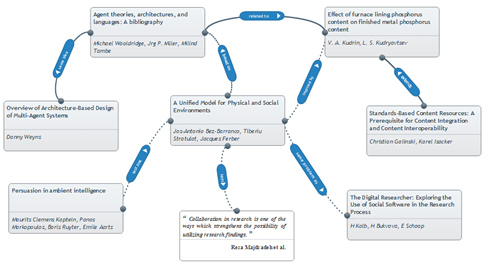Mendeley/PLoS API Binary Battle – the finalists
18 Nov, 11 | by BMJ
PLoS and Mendeley recently closed their Binary Battle contest to build the best apps that make science more open using PLoS and/or Mendeley’s APIs (Application Programming Interface). There are some big names on the judging panel, such as Tim O’Reilly (coined the term ‘Web 2.0’), James Powell (CTO of Thomson Reuters) and Werner Vogels (CTO of Amazon.com). The entries have been whittled down to 11 finalists and the winner will be announced on 30th November 2011. Read on for details of some of these finalists or go here a full list: http://dev.mendeley.com/api-binary-battle
PLoS Impact Explorer
Why wait for citations? See which articles in your field are getting the most buzz online and read what your peers and the general public are saying about them. The PLoS Impact Explorer app is an extension of the Altmetric service discussed a few weeks ago, which tracks and scores academic output (scientific articles and datasets) based on the mentions it has received in the press, on reference manager websites, on social media websites, and in literature reviews.
Collabgraph
 Visualise who is collaborating in your research field with data from your Mendeley library or BibTeX file. Just connect with your Mendeley library or upload a bibtex file, containing your literature references and Collabgraph will create a fancy graph showing who is publishing with whom.
Visualise who is collaborating in your research field with data from your Mendeley library or BibTeX file. Just connect with your Mendeley library or upload a bibtex file, containing your literature references and Collabgraph will create a fancy graph showing who is publishing with whom.
KLEENK
Make “smart” connections between articles, books and any other research object and learn from connections made by other researchers. Currently uses content from PLoS, Mendeley and Springer. The creators argue that connections between scientific contents are just as important as the contents themselves. A ‘kleenk’ is simply a connection between two pieces of content and it has two important elements: Type (a few words summary) and Description (a few paragraphs with details about the connection).
 ReaderMeter
ReaderMeter
 Research impact is now crowd sourced. Future impact of research is estimated using real-time bookmarking aggregated from Mendeley. ReaderMeter is an application showcasing the potential of readership data obtained from reference management tools. The creator decided to see what could be built on top of the data exposed by Mendeley and came up with a mashup aggregating author-level readership statistics based on the number of bookmarks scored by each of one’s publications. ReaderMeter generates a report with several metrics that attempt to quantify the relative impact of an author’s scientific production based on its consumption by a population of readers.
Research impact is now crowd sourced. Future impact of research is estimated using real-time bookmarking aggregated from Mendeley. ReaderMeter is an application showcasing the potential of readership data obtained from reference management tools. The creator decided to see what could be built on top of the data exposed by Mendeley and came up with a mashup aggregating author-level readership statistics based on the number of bookmarks scored by each of one’s publications. ReaderMeter generates a report with several metrics that attempt to quantify the relative impact of an author’s scientific production based on its consumption by a population of readers.
PaperCritic
 Post-publication peer review in an open environment. Rate papers, write critical reviews or read those from others.
Post-publication peer review in an open environment. Rate papers, write critical reviews or read those from others.
Right now, the only acceptable way of presenting one’s academic work and obtaining critical reviews for it is by submitting it to a peer-reviewed publication, a process which is both extremely slow and obscure. Here at PaperCritic, we find this way of promoting science severely outdated and simply unacceptable. It is for this reason that we offer researchers a way of obtaining feedback for their scientific work, and everybody interested a way of providing it, in a fully open and transparent environment.
Apart from helping the scientific community, PaperCritic also helps you as a researcher or a science enthusiast organize your publication library even better. If you’re using Mendeley (which you should!), you’ve already embraced all the neat things it offers, such as tags, summaries and in-text notes. Yet sadly Mendeley doesn’t provide its users with the means to rate the different aspects of publications, or to write critical reviews of your own. Well, using PaperCritic you can now rate and review any publication just like the big guns at IEEE.
Total-Impact

Get a broad picture of the true impact of what you’re reading with data aggregated from many sources. Total-Impact offers a quick and easy view of the impact of research output. It goes beyond traditional measurements of research output to embrace a much broader evidence of use across a wide range of scholarly output types. The system aggregates impact data from many sources and displays it in a single report, which is given a perma-URL for sharing and can be updated at any time.
The other finalists include:
